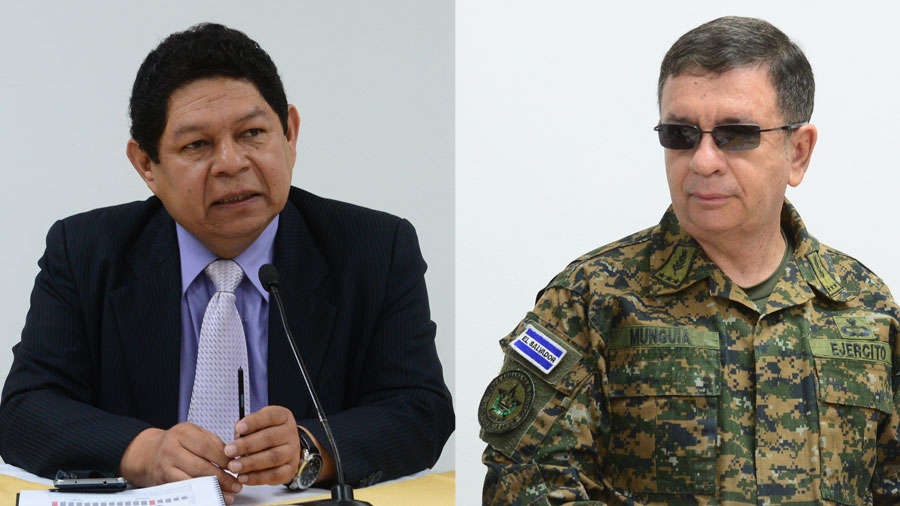Expert: Prison depot funds diverted to intelligence spending

Former directors of penal centers, Nelson Rhoda and Rudel Hernandez are charged with fraudulent administration for $208.000.00 corresponding to institutional stores.
A financial expert announced, Friday, in the trial of the former directors of penal centers, Nelson Rhoda and Rudel Hernandez, that he had not found documents justifying the arrival of $ 208 thousand from institutional stores for intelligence expenditures in the two accused administrations.
The technician pointed out that the manuals for managing institutional stores in prisons stipulate that their profits or profits should be invested in social programs for the benefit of prison inmates and improving prison infrastructure.
The expert said before the judges of the Fifth Court: “I did not find documents that prove that this money from intelligence spending will improve the conditions of prison inmates.”
He confirmed that he had found several checks for about six alleged employees of the sanctions centers who received part of that money, but he said he did not know their destination.
It may interest you: Bathing was not a habit for a third of El Salvador’s population
Before the trial began, one of the plaintiffs asserted that the former officials “used funds from institutional stores outside what is permitted by law.”
He added that a diversion of $208,000 in intelligence expenditures by Rhoda and Hernandez had been recorded, but that those funds were not backed by the law regulating institutional stores.
OTP accuses Hernandez of fraudulently administering $121,238.00; While Rawdah is credited with the illegal administration of $87,154.00
The financial expert was one of the six prosecution witnesses brought by the attorney general’s office against former prison officials. Other witnesses before the attorney general’s office include the two former Ministers of Public Security, David Mongoya Pais and Benito Lara.
They confirmed that the Directorate of Criminal Centers sent funds from institutional stores to the Ministry of Justice and Public Security for intelligence and counterintelligence, according to judicial sources.
“The Attorney General’s office intended with them to prove that there were funds from private institutional stores. Now they want to prove that they are private because they are accusing the administration of fraud, which is even more contradictory. In the armistice case when they charged Nelson Rawda, they said they were public funds and that’s why they did arbitrary actions against him, And this is really private money, and this is a contradiction,” said Manuel Chacon, the defender of the former accused officials.
He added that they also wanted to prove the existence of intelligence expenditures “which are private funds that these institutions have to deal with situations of risk in order to find potential threats against the prison population, against the authorities, or against the civilian population.”
Chacón asserted that Munguía Payés and Lara’s statements were explanatory in nature “They were not indications, but directives, how things were handled, who was on that date, it wasn’t about implication, it was just clarifying.”
Defense attorneys provided statements from four defense witnesses in favor of the two former prison officers.
This is the second trial against Rawda and Hernandez, as they were acquitted in the first of the charges by the fourth ruling court. The Public Prosecution requested an annulment of the sentence, and the First Criminal Chamber agreed with him and ordered a retrial.
For this second trial, which is expected to end on Friday, the fifth sentencing court has been set.
During the development of the hearing, Tweet embed He will present the evidence obtained during the investigation, in order to obtain a conviction against the former officials. pic.twitter.com/RGSY38aqwP
– Attorney General of the Republic of El Salvador (FGR_SV) July 9, 2021




:quality(85)/cloudfront-us-east-1.images.arcpublishing.com/infobae/P3M34YHXTVFZTCYTQQSSPRA4ZM)